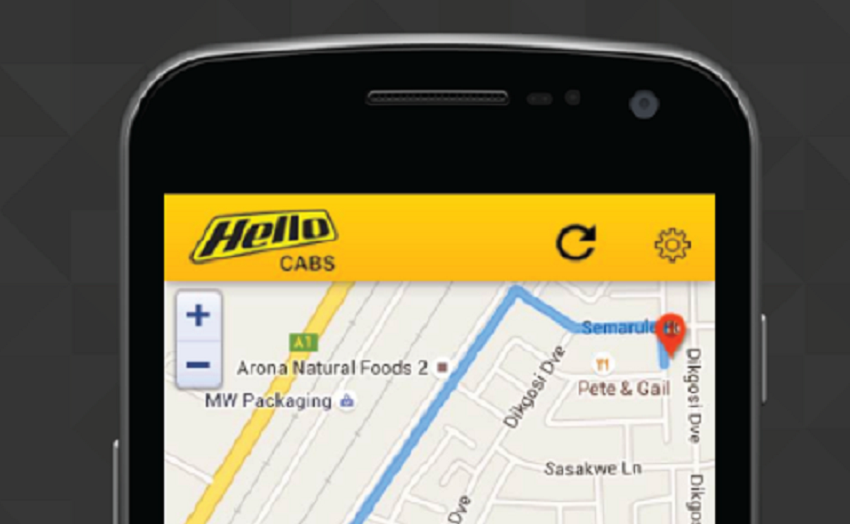Botswanan taxi hailing app Hello Cabs believes it has bettered Uber by adapting its model to the African context, particularly when it comes to the connectivity challenges the continent faces.
Launched in February of this year, Hello Cabs allows users to hail taxis in Botswana’s capital Gaborone via their mobile phones, in much the same way as Uber users do across the world. But general manager Sithembiso Canaan Dube, who used to run a traditional taxi company of his own, believes Hello Cabs had found a way of adapting the model for the African market.
“Traditional cab hailing technology is based on customers downloading an app and using it to hail cabs on their smartphone. This is a wonderful thing if you have great internet, internet access, affordable internet, a reliable mapping provider, access to smartphones, and your GPS isn’t disturbed by buildings,” he told Disrupt Africa.
“All of these are a frightening non-reality in the African market, hence cab hailing isn’t a scalable solution to cab logistics for the African market.”
Though Hello Cabs does offer an Uber-style taxi hailing app to users, Dube’s solution to the challenges referred has been roll out a customer care app for those without internet access or smartphones. Through this service, users contact the Hello Cabs call centre, which will arrange the trip in the same way the user would do via the smartphone app.
Users can book multiple trips, with multiple agents, and Hello Cabs plans to make the service available to shopping mall information centres and similar places.
“We made this app to capture the larger universe of customers whom the Uber-style app leaves on the table,” Dube said.
“The customer care app will allow for mass distribution of access to the cab logistics ecosystem based on the cab hailing platform. The app can be used by information centres in shopping centres, large office buildings, hotels, airports, and third party part-time service providers with a phone line at home.”
He said the Hello Cabs ecosystem thereby ensures a differentiated entry point into the cab logistics ecosystem with a single standardised exit point in the form of the driver app.
“This will enable our company to be the first point of contact for LSM migration from the minibus and bus style forms of transport to taxicab entry level sedans,” Dube said.
The startup, self-funded from family resources, is thus far only operating in Gaborone, but will shortly launch services in Francistown and Maun before looking further afield. Revenues are earned from commissions from partner drivers on referred rides, with Hello Cabs currently supporting more than 5,000 trips per month.
“Our average price per trip is US$4 and we take a 30 per cent commission from this. Right now we are reinvesting everything we make into improving the platform,” Dube said.
Ninety per cent of Hello Cabs trips are via its call centre, though Dube attributes this to connectivity problems in Gaborone occasioned by poor services quality from the country’s mobile operators.
“The mobile networks in Gaborone are a disaster. Big disaster. This has restricted uptake by customers, hence they simply call our call centre for us to despatch car. That’s why there’s a skew in the percentage of trips of call centre and customer app,” he said.
Hello Cabs, according to its general manager, is unconcerned about any potential launch by Uber in Gaborone, which in any case is likely to be quite a way off. The fact Hello Cabs is cash-only and its call centre, Dube believes, keeps it ahead of the game.
“If Uber launches in Gaborone, it will be difficult for them. The traditional cab hailing model they operate will face difficulty from an operational perspective,” he said.
“This is why we entered the market with hybrid model. The Uber model is defective outside of South Africa. The model leaves a lot of money on the table by being restrictive and ultra exclusive. If they come we will be ready to compete with them.”


